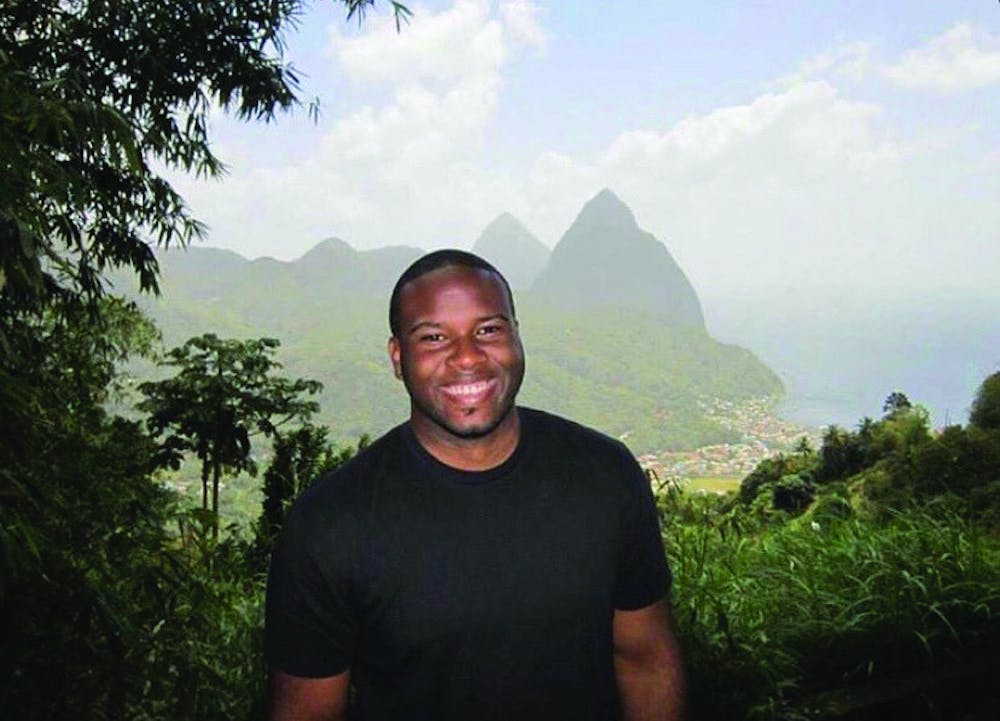Botham Jean: while it is a name few know outright, his story is widely known due to the media coverage it received in 2018.
Jean was murdered in 2018 by Amber Guyger, an ex-Dallas police officer who entered the wrong apartment Sept. 6, 2018.
Guyger entered apartment 1478 at the South Side Flats apartment complex in Dallas, fatally shooting Botham Jean as she mistook his apartment for her own.
According to Guyger, she believed she had interrupted an intruder in her own home and used lethal force to defend herself. However, she had wrongly entered Jean’s house. He was eating ice cream when Guyger fatally shot him in the chest.
Moments after the shooting, Guyger realized she was in the wrong apartment.
On Sept. 13, 2018, Jean’s funeral was held at Greenville Avenue Church of Christ in Dallas. Jean’s uncle, Ignatius Jean, who had traveled from St. Lucia for the funeral, told ABC News about the impact Jean made on the world through his ministry, his kindness and his love.
“The sound of gunshots did not have the resonance to be heard on our small island, but their impact was of nuclear proportions,” Ignatius said.
Tamara Barnard, a senior at Mercer University, witnessed this tragedy, not on the news, but in her own life: Jean was her cousin.
[pullquote speaker="Tamara Barnard, senior" photo="" align="left" background="off" border="right" shadow="off"]It’s not enough to just not be racist; you have to be anti-racist. This includes calling out your friends and family and holding them accountable, even if it may feel uncomfortable. Educate yourself on issues and don’t always expect a person of color to have to educate you on issues regarding race ... Don’t be afraid to talk about race. It’s important to speak up.[/pullquote]
“I think racism in this country has taken on a new complex form. With the various social media outlets we have now, racism is more visible. I don’t know if I would say it’s getting worse, but I know it’s not getting better. The issues of systemic racism are still very much prevalent,” Barnard said.
Many people of color and their allies share this sentiment. “Racism isn’t getting worse; it’s just being filmed” has been a large part of the recent Black Lives Matter movement.
The unfortunate need to record racial violence has seemed to become commonplace due to the current racial and political climate. A majority of Americans — 65%, including majorities across racial and ethnic groups — say it has become more common for people to express racist or racially insensitive views since President Donald Trump was elected in 2016. And 45% say it has become more acceptable, according to the Pew Research Center.
Barnard said proper education is needed in order to make America a place of racial equality.
“I think a good start would be teaching an accurate depiction of African American history in all school systems and not having a president that condones racism,” Barnard said.
The study of genetics has found that there truly is no difference in race when looking at the scientific information gathered widely throughout the world. Instead, scientists argue that race is a social construct.
“Today, the mainstream belief among scientists is that race is a social construct without biological meaning. And yet, you might still open a study on genetics in a major scientific journal and find categories like ‘white’ and ‘Black’ being used as biological variables,” according to Scientific America.
The need to differentiate groups based on skin color is yet another example of how systemic racism has created a divide within the United States.
“Black Americans continue to face unnecessary hardships at every level of society. From lack of access to educational opportunities, health care disparities, mass incarceration, the list goes on. African Americans are still facing consequences from Jim Crow laws and other structural racism sponsored by both the federal and state governments,” Barnard said.
One way that Barnard and her family continue to create an impact despite these difficulties and discrepancies due to race is through the memory of Botham Jean.

“After my cousin’s murder, my family created The Botham Jean Foundation, a non-profit organization to help keep his memory alive and continue on his work of helping others. While Botham was alive, he did a lot of mission work, especially in our home country, St. Lucia,” Barnard said.
Barnard recently discussed her story at Mercer’s Black Lives Matter vigil. She described in detail what happened to her cousin and its impact on her family. She is also conducting a research project on racial bias and police violence.
Barnard was able to use this research, conducted with the help of Natalie Bourdon, associate professor of women’s and gender studies and chair of the anthropology department, to give an oral presentation through the Council of Undergraduate Research in Washington, D.C.
The Council on Undergraduate Research is committed to inclusivity and diversity in all of its activities, allowing discussions and participation from individuals and groups that have been traditionally underrepresented in undergraduate research.
Barnard is also pursuing an applied social justice certificate where she hopes to use this research to better the community and raise awareness about racial bias and police violence.
While this work and effort to create change and help others is important, Barnard said all people, but white people in particular, can help to bring about an end to racism and the tragic consequences it causes.
“It’s not enough to just not be racist; you have to be anti-racist. This includes calling out your friends and family and holding them accountable, even if it may feel uncomfortable. Educate yourself on issues and don’t always expect a person of color to have to educate you on issues regarding race,” she said. “Don’t be afraid to talk about race. It’s important to speak up.”





